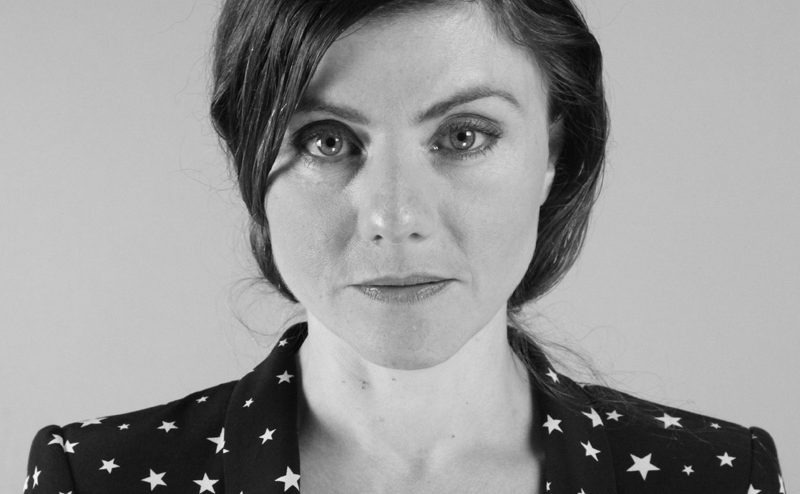
Females in Film | Filmmaking | Interviews | Massachusetts
Talking with Actress, Director and Writer Marie-Emmanuelle Hartness
Written by Josh Coleman | Posted by: Anonymous
As an actress, writer and director, Marie-Emmanuelle Hartness has immersed herself in all aspects of filmmaking, even bridging both documentary and narrative projects. Born in Paris, Hartness has been writing since she was about fifteen-years-old. She began in theater, and then began to work in France on novel-to-film adaptations. Since moving to Massachusetts, she has collaborated on film projects with renowned filmmaker Ross McElwee and has continued writing/directing her own films.
Her most recent short film After Ella screened at the 2014 Cannes Film Festival and won the First Prize Directorial Discovery Award at The Rhode Island International Film Festival this summer. Her third film Writer’s Block won the Berlinale Canon Competition at the Berlin Film Festival and is being produced by Canon. She was listed in the 10 Filmmakers to Watch in 2014 by The Independent. NewEnglandFilm.com had a chance to chat with Hartness about her inspiration and work.
JC: Who or what has been your inspiration?
Hartness: I am inspired by actors, directors, artists and painters. But, of course, I feel it comes from a personal desire to write stories, tell stories, and interact with other people through stories. When I was a kid I was writing poems for parents for their birthdays. There was always a way to communicate with someone, but I think it’s a personal desire, to tell stories.
On the visual side, for filmmaking, I’m inspired by Orson Welles, Darren Aronofsky, there are so many it’s hard to name them all! But I really come from theater. I started theater when I was eight, started directing plays for little kids when I was twelve. I went to theater school and a conservatory in Paris. Theater has inspired me to write very character driven stories. Because in theater, there is always a character talking or the center of what is happening on stage is about a character. Shakespeare has always been a huge inspiration for me as well.
JC: Where did this idea come from?
Hartness: After Ella is a short film that explores the aftershock of losing a loved one that is not expected. In this case, the main character’s sister has passed away from an accident. They are not just sisters, but friends, and they work together as photographers. That’s the base of their relationship. Their identity is connected to each other, so when one disappears, what becomes of the one who stays? So, I’m exploring the shock and the identity. The search for a new identity and the refusal of this identity because she is not ready to be anyone else but the sister of Ella. It takes place during that lapse of time in her mind, that’s what I explored visually.
There’s almost no dialogue in the film. We are in her mind, what she sees and how she feels is what we explore, along with her transformation from one identity to another. To me, it’s an exploration of identity in a very organic way. I film in black-and-white, very very close to the skin. The sound was a complete invention, with almost no sound on set, because I wanted to create her visual world and what is happening in her mind. Like, when her sister is talking to her or when she is reading texts her sister writes to her. Is it her imagination? Is it really her voice? Is it the memory that comes back? She’s stuck in time and can’t move on. Everyone else is moving on with their lives. Visually and through sound, creating both those worlds trying to understand her state of mind.
JC: What was the process of making the film like?
Hartness: From the start, I had a very clear visual of what I wanted to do. It was almost difficult to put it on paper, because I am working with a team and I need to be able to communicate the story I want to tell. It really came to me as a visual first and then I wrote the script. So how can one write a script from a very abstract vision? It was not difficult for me to write but it was difficult for the story to be understood by my team.
For me, I thought it would be a challenge but it ended up doing really well. I worked with my actress for about six months before we started shooting. We would meet about once a week and talk about the character, anything that could be related or not, for her to be able to create her own vision of what I wanted to do. We had a very trustful relationship. To be able to let go of so much emotion during the filming. I’m not sure if I would’ve had so much intensity in her acting or non-acting, during the filming had I not had all this time for her to let go and experience all this emotion the character was feeling.
JC: Where do you see the project going? Festivals?
Hartness: It was at the Rhode Island International Film Festival, it won the Directorial Discovery Award, first prize. So now I am applying to more festivals, but nothing I can confirm. After the Cannes Film Festival, I received some distribution offers. We’re talking about distribution and possible TV.
JC: What can we expect to see from you in the future?
Hartness: Writer’s Block, is the third film I am directing. This film will be finished in about a month. So you will be able to see that soon! I am also writing a feature film, the story of a chef. This film is also a character driven story and an inter-generational story. Soon, I will be producing a documentary as well!
For more information, visit http://www.stquayfilms.com/ and http://www.maiema.com/
For more information, visit http://www.stquayfilms.com/ and http://www.maiema.com/









